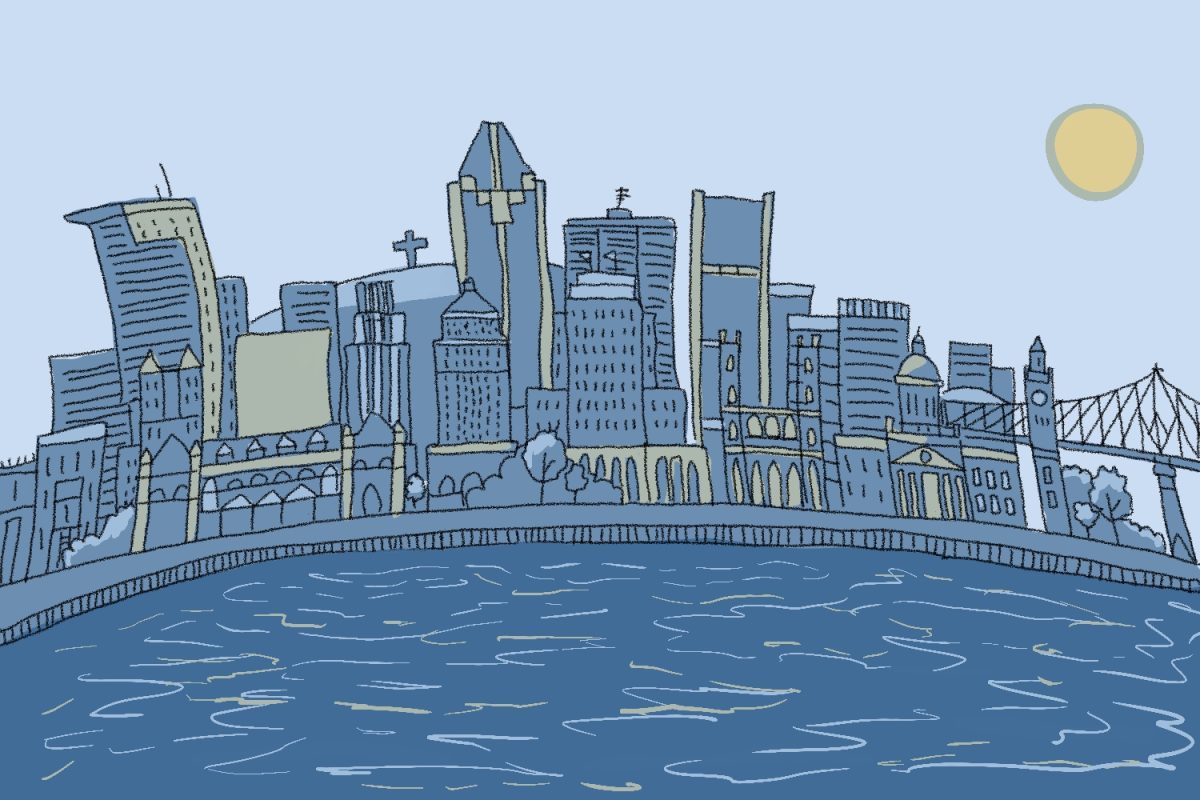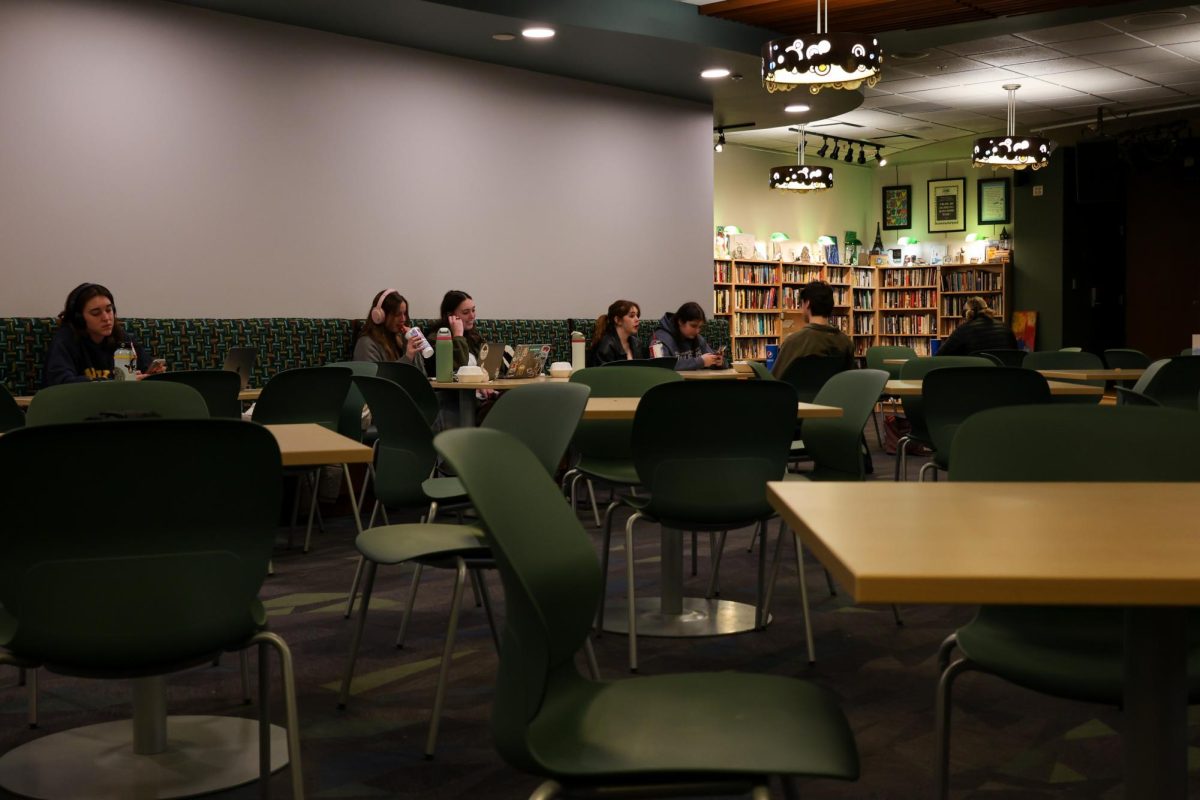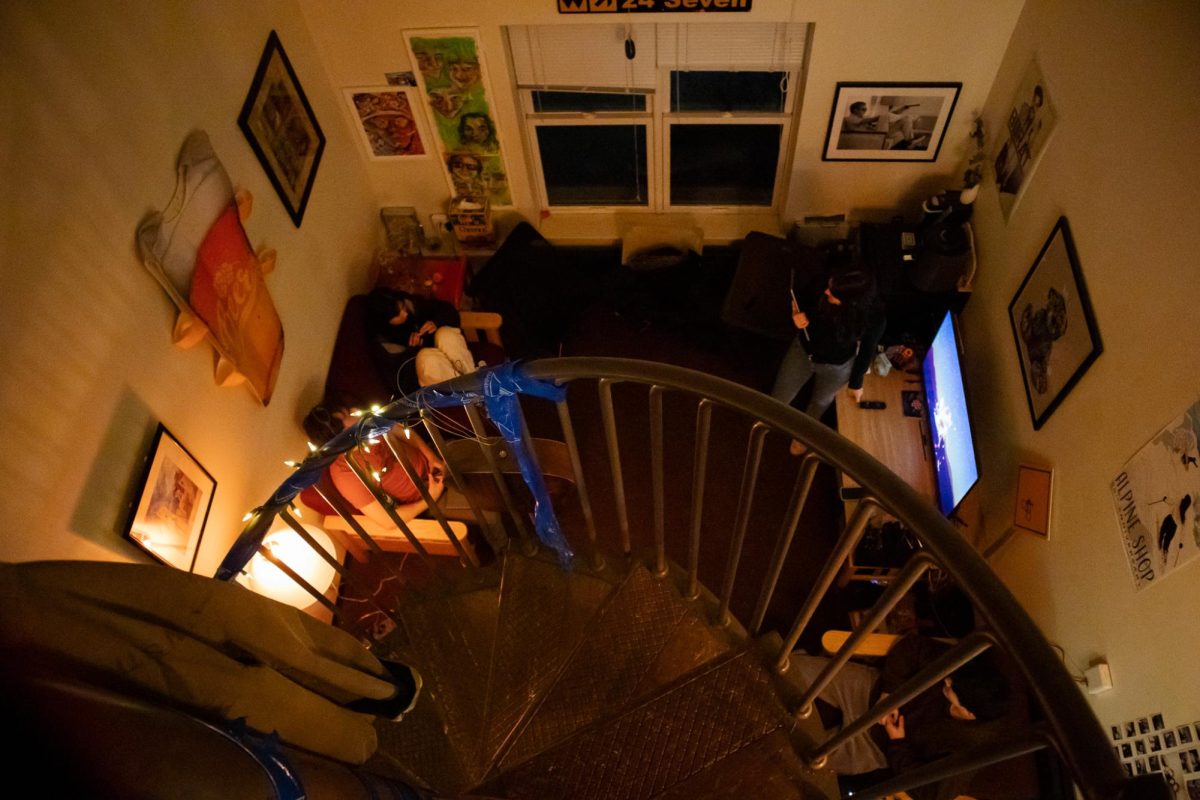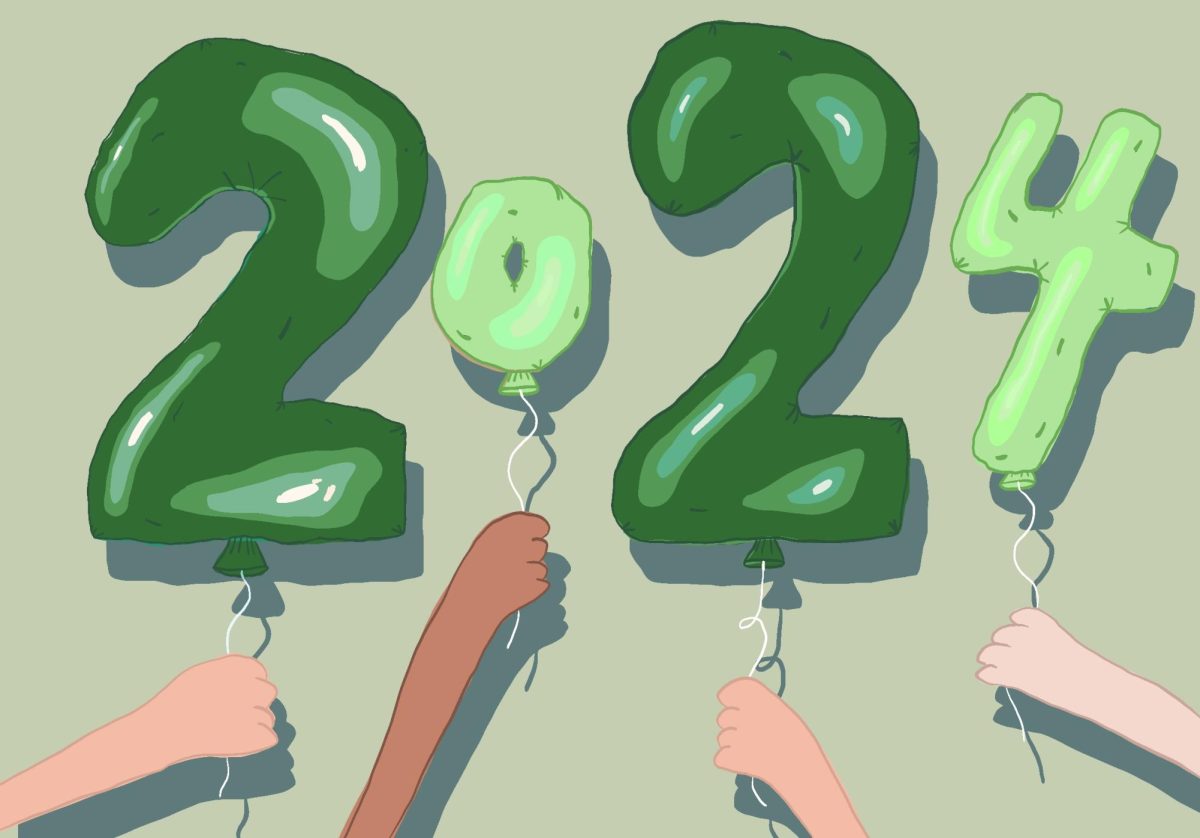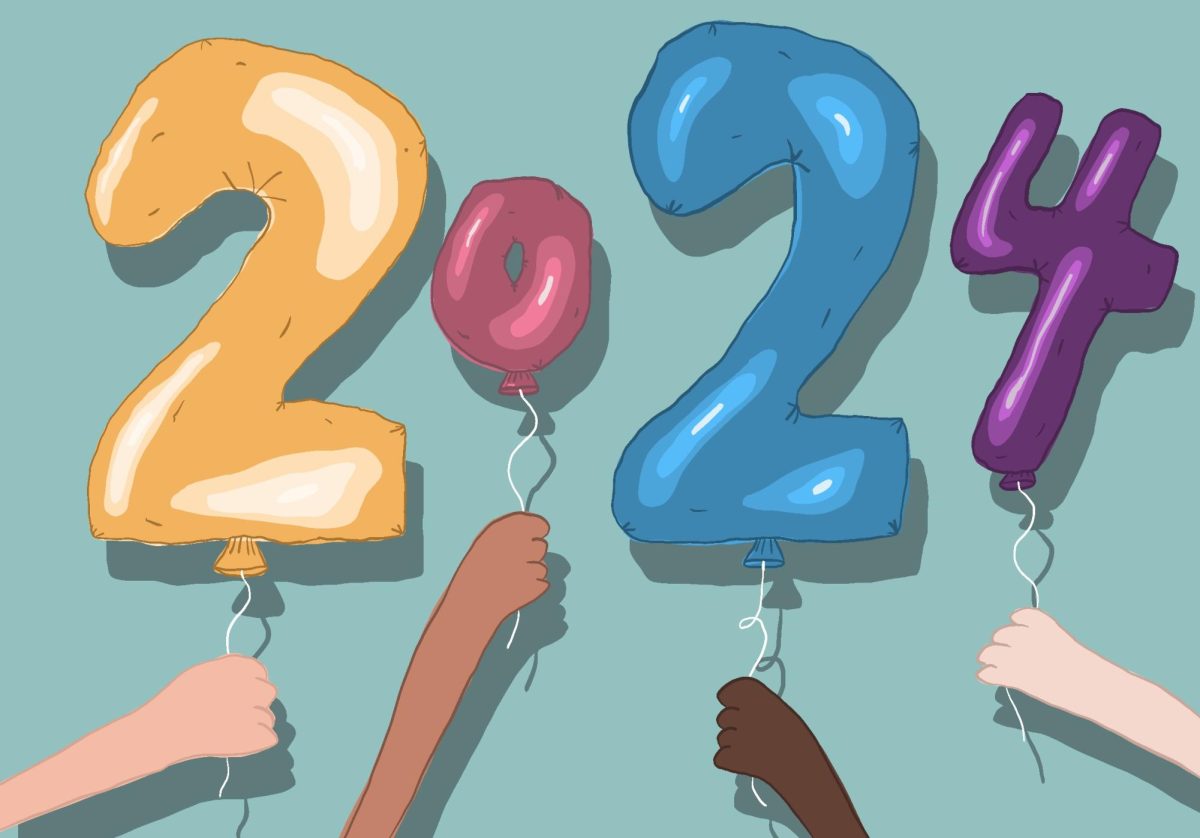While there may not be much question about Vermont’s two electoral votes, there are a few races in Vermont this fall that are far from decided. Governor Jim Douglas (R) battles a possible threat to his reelection from Burlington Mayor Peter Clavelle. In the race for the Senate, Democratic incumbent Patrick Leahy easily handles a double digit lead in the polls over Republican Jack McMullen. Independent Bernie Sanders squares off against two competitors for the House: Republican Greg Parke and Democrat Larry Drown.
45 percent of the UVM students hail from Vermont with nearly all faculty and staff being Vermont residents. The UVM community may be a small pool of voters but the university does offer a few things that are of great importance for this year’s election: jobs and an economic stimulus to the greater Burlington area.
The university plans to admit more students each year, with each new student comes more money that is spent in Vermont, money that helps sustain and create jobs. The agreement between United Academics, UVM’s faculty union, and the administration has increased the salaries and benefits to the university’s faculty. Professors’ higher salary gives the state a greater tax base as well as greater amount of money that will flow through Vermont’s marketplace.
The state of Vermont had gotten the reputation over the past few decades for being socially liberal yet fiscally conservative, always keeping state spending low.
This can be seen in the state appropriation to UVM; this year, 2004, the state appropriation is roughly $37,110,000 with the total revenues budget of $397,791,000, making up 9.3 percent of the university’s total revenue budget. The state appropriation is set to increase every year but as the university grows the state appropriation as a percentage of total revenue is set to decrease. An example of this is comparing the past two years. In 2003 the state appropriation was $36,383,000 making up 9.6 percent of the total revenue budget. UVM is definitely not the state’s top priority, although, last year, state appropriation to UVM increased in lieu of substantial cut to other state programs.
The Governor of Vermont has one of the 25 seats on the university’s Board of Trustees. Governor Douglas cast an “aye” in the Trustee’s approval of the $70 million plan Student Commons construction plan, and has been generally supportive of the university’s planned expansion.
The Race for Governor
Vermont is one of few states in the US the governor serves a two year term. The incumbent, Republican Jim Douglas has been a part of the Vermont political scene for over 30 years; out of college Jim Douglas was elected to the Vermont House of Representatives for three terms. Douglas was elected Secretary of State a position he held for five terms until 1992. In 1994 he was elected State Treasurer until 2002 when he was elected Governor. Governor Douglas is also the Chair of the Bush/Cheney reelection campaign in Vermont.
Clavelle, Mayor of Burlington since 1989, is now serving his eighth term. Clavelle was Burlington’s economic development director while Bernie Sander was the Mayor of Burlington. Unlike Douglas, Clavelle has shown himself to be more fiscally liberal, using government spending as a primary economic impetus.
Job creation is the top issue in this year’s race. Vermont has seen a net job loss in the past two years, although both sides are accusing the other of using fuzzy numbers for their job loss calculations. Douglas claims that 7,000 new jobs have been created in Vermont since he took office; Clavelle has argued that the 7,000 represent the gross job creation and not the net that most economists use. Nonetheless, both can agree on the numbers that Vermont lost 1,800 jobs in the month of July alone.
Another large issue for both candidates is the state’s healthcare system and the cost of prescription drugs. Both want to make healthcare universal and affordable for all Vermonters as well as to provide low-cost prescription drugs to those who need them most, but they do not agree with how the other plans to achieve this. Clavelle has set up a program in Burlington where prescription drugs are reimported from Canada saving individuals as much as 60 percent. Clavelle wants to immediately establish this as a state policy, while Douglas says he will wait for the green light from Bush Administration before he does so. Douglas believes that the plan Clavelle for healthcare will cost the taxpayers too much.
Clavelle’s campaign for governor has focused on a “10 point plan” for the state of Vermont. This plan focuses on investment in transportation that would float government bonds to finance the next section of the Bennington Bypass and the Chittenden County Circumferential Highway. Other points seek to promote Vermont’s “creative economy” in technological innovation, arts, and entertainment.
The Race for the Senate
Democrat Patrick Leahy is nearly at the end of his fifth term as a Senator, and is attempting to go for a sixth. He first took office in 1974 when he was 34 years old. He is currently the Chairman of the Senate Judiciary Committee. Leahy gained lots of media attention this past June when Vice President Dick Cheney told him to “fuck off” on the Senate floor.
Leahy has been a thorn in the Bush Administration’s side since Bush took office. He supported military action in Afghanistan to remove the Taliban rule, but has since been an outspoken critic of the war in Iraq. Leahy was one of only 23 Senators to vote against going to war in Iraq. He has always opposed giving President Bush his requested “blank check” for his war efforts in Iraq.
Leahy’s opponent for the Senate is Republican Jack McMullen, when it comes to the war on Iraq He could not be more opposed to Leahy’s stance. McMullen wrote, “It is better to have trained and equipped forces fighting our determined enemies in a war zone than to have our police and firefighters combating terrorism in streets of New York or Chicago.”
McMullen is a businessman and s successful entrepreneur. This is where he believes he can help Vermonters and the nation, in the creation of new jobs through developing policy to promote the growth and health of small and medium sized businesses in Vermont.
The Race for Congress
The race for Vermont’s only seat in the House is a three-way race between the prolific Bernie Sanders who has held his seat in the House longer than any other Independent in history, and Republican Greg Parke and Democrat Larry Drown.
Bernie Sanders has held Vermont’s sole seat in the House of Representatives since 1991. Throughout his career he has been equally critical of both Democrats and Republicans, but this election Sanders has endorsed many Democrats. He believes that November 2nd will be “the most important election in the modern history of America.” He has taken up campaigning for John Kerry’s Presidential campaign as well as supporting Peter Clavelle’s gubernatorial campaign.
Republican Greg Parke is a retired Air Force Lieutenant Colonel and Command Pilot flying F-16 Fighting Falcon among other fighter jets while in active duty. Earlier this month he attacked Sanders on his stance on intelligence, saying, “I lay blame for 9/11 right at the feet of Mr. Sanders and people like him that cut our intelligence budget.”












